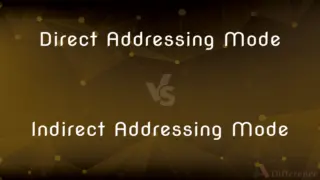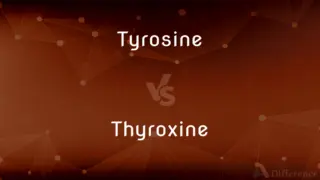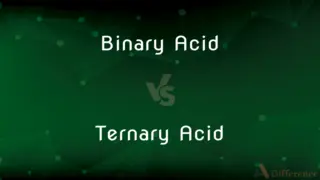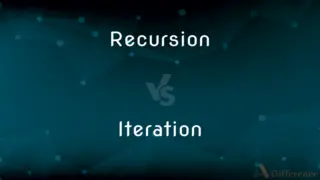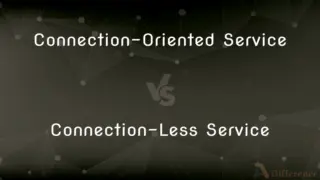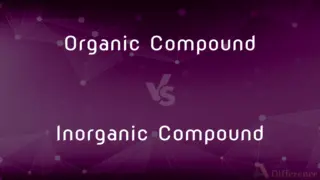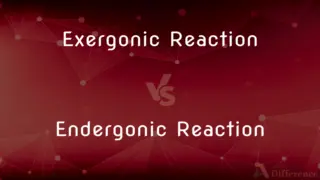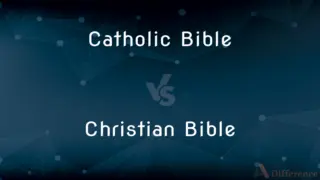Equivocal vs. Unequivocal — What's the Difference?
Edited by Tayyaba Rehman — By Urooj Arif — Updated on March 26, 2024
Equivocal statements are ambiguous and open to multiple interpretations, while unequivocal statements are clear and leave no doubt.

Difference Between Equivocal and Unequivocal
Table of Contents
ADVERTISEMENT
Key Differences
Equivocal language is characterized by its ambiguity, allowing for several interpretations and often used to convey uncertainty or avoid commitment. On the other hand, unequivocal language is marked by clarity and definitiveness, making statements clear and leaving no room for doubt or ambiguity.
Equivocal statements often rely on context, subtle cues, or additional information for their full meaning to be understood, whereas unequivocal statements are straightforward and understood in their entirety at face value.
In communication, equivocal terms can lead to misunderstandings or be used strategically to maintain diplomatic neutrality. Conversely, unequivocal terms are preferred in legal documents, instructions, or any scenario where precision and clarity are paramount.
Equivocal expressions can be useful in poetry and literature, where ambiguity adds depth and layers of meaning. In contrast, unequivocal expressions are favored in science and technical writing, where clear and precise communication is critical.
While equivocal language can foster creative thinking and interpretation, leading to a richer dialogue or literary experience, unequivocal language ensures accuracy and effectiveness in communication, especially in critical or high-stakes environments.
ADVERTISEMENT
Comparison Chart
Clarity
Ambiguous, allowing multiple interpretations.
Clear, with a single, unambiguous interpretation.
Purpose
Often used to avoid commitment or maintain neutrality.
Used to convey certainty and avoid misunderstandings.
Usage in Communication
Can lead to misunderstandings; requires context for clarity.
Direct and straightforward, ensuring clear understanding.
Preferred Contexts
Diplomacy, poetry, and literature.
Legal documents, instructions, and scientific communication.
Effect on the Audience
Encourages interpretation and exploration of meanings.
Provides certainty and clarity, reducing confusion.
Compare with Definitions
Equivocal
Open to more than one interpretation; not having one obvious meaning.
His remarks were equivocal, leaving everyone uncertain of his true opinion.
Unequivocal
Leaving no doubt; unambiguous.
Her refusal was unequivocal, leaving no room for further discussion.
Equivocal
Deliberately ambiguous or unclear.
The politician's equivocal answer did not satisfy the reporters.
Unequivocal
Clearly defined or determined.
The test results were unequivocal, confirming the diagnosis without a doubt.
Equivocal
Uncertain or questionable in nature.
The evidence presented was equivocal and did not convince the jury.
Unequivocal
Expressed or understood in a clear and direct manner.
His support for the policy was unequivocal and public.
Equivocal
Used to convey complexity or uncertainty.
The novel's equivocal ending left readers pondering its true meaning.
Unequivocal
Absolute and not open to interpretation.
The evidence against the defendant was unequivocal and led to a quick verdict.
Equivocal
Capable of being understood in two or more possible senses or ways.
The phrase light refreshments is equivocal and could mean anything from drinks to a full meal.
Unequivocal
Not subject to conditions or exceptions.
The guarantee on the product was unequivocal, covering all damages.
Equivocal
Open to more than one interpretation; ambiguous
The equivocal nature of her remarks
Unequivocal
Admitting of no doubt or misunderstanding; clear and unambiguous
An unequivocal success.
Equivocal
Open to two or more interpretations and often intended to conceal the truth.
Unequivocal
Unambiguous; without equivocation or ambiguity; singularly clear, unmistakable, or unquestionable
I want you to give me an unequivocal guarantee on that.
Equivocal
Characterized by a mixture of opposing elements and therefore questionable or uncertain
Evidence of the drug's effectiveness has been equivocal.
Unequivocal
Without equal, matchless.
The unequivocal scope of the Golden Gate Bridge
Equivocal
Having two or more equally applicable meanings; capable of double or multiple interpretation.
Equivocal words
An equivocal sentence
Unequivocal
Not equivocal; not doubtful; not ambiguous; evident; sincere; plain; as, unequivocal evidence; unequivocal words.
Equivocal
Capable of being ascribed to different motives, or of signifying opposite feelings, purposes, or characters; deserving to be suspected.
His actions are equivocal.
Unequivocal
Admitting of no doubt or misunderstanding; having only one meaning or interpretation and leading to only one conclusion;
Unequivocal evidence
Took an unequivocal position
An unequivocal success
An unequivocal promise
An unequivocal (or univocal) statement
Equivocal
Uncertain, as an indication or sign.
Unequivocal
Clearly defined or formulated;
The plain and unequivocal language of the laws
Equivocal
(philosophy) A word or expression capable of different meanings; an ambiguous term.
Equivocal
Literally, called equally one thing or the other; hence:) Having two significations equally applicable; capable of double interpretation; of doubtful meaning; ambiguous; uncertain; as, equivocal words; an equivocal sentence.
For the beauties of Shakespeare are not of so dim or equivocal a nature as to be visible only to learned eyes.
Equivocal
Capable of being ascribed to different motives, or of signifying opposite feelings, purposes, or characters; deserving to be suspected; as, his actions are equivocal.
Equivocal
Uncertain, as an indication or sign; doubtful.
Equivocal
A word or expression capable of different meanings; an ambiguous term; an equivoque.
In languages of great ductility, equivocals like that just referred to are rarely found.
Equivocal
Open to two or more interpretations; or of uncertain nature or significance; or (often) intended to mislead;
An equivocal statement
The polling had a complex and equivocal (or ambiguous) message for potential female candidates
The officer's equivocal behavior increased the victim's uneasiness
Popularity is an equivocal crown
An equivocal response to an embarrassing question
Equivocal
Open to question;
Aliens of equivocal loyalty
His conscience reproached him with the equivocal character of the union into which he had forced his son
Equivocal
Uncertain as a sign or indication;
The evidence from bacteriologic analysis was equivocal
Common Curiosities
What is an example of an unequivocal statement?
"The sky is blue" is an unequivocal statement due to its clear, undeniable fact.
Can a statement be both equivocal and unequivocal?
No, a statement cannot be both; it's either ambiguous (equivocal) or clear (unequivocal).
Why might someone use equivocal language?
To avoid giving a direct answer, maintain neutrality, or encourage interpretation.
What does equivocal mean?
Equivocal means ambiguous or open to more than one interpretation.
In what contexts is unequivocal language crucial?
In legal, scientific, and technical documents where precision is key.
Can the use of equivocal language lead to misunderstandings?
Yes, because it can be interpreted in multiple ways.
How do equivocal and unequivocal languages affect negotiations?
Equivocal language can soften demands and leave room for compromise, while unequivocal language can establish firm positions.
Is it possible for a phrase to be equivocal to one person and unequivocal to another?
Yes, depending on the individual's knowledge and perspective.
How does unequivocal language benefit communication?
It ensures clarity, reduces misunderstandings, and conveys certainty.
Why is unequivocal language preferred in instructions?
To avoid ambiguity and ensure the instructions are followed correctly.
What makes a statement unequivocally true?
When it is supported by indisputable evidence or facts.
Is equivocal language always a negative trait?
No, it can be valuable in creative writing and diplomacy where nuance is beneficial.
How do writers use equivocal language to their advantage?
To add layers of meaning, create suspense, or evoke diverse interpretations.
Is it better to be equivocal or unequivocal in personal relationships?
It depends on the situation; unequivocal communication is generally preferred for clarity, but equivocal language may be used to navigate sensitive topics gently.
Can the context change the perception of a statement from equivocal to unequivocal?
Yes, additional information or context can clarify an ambiguous statement.
Share Your Discovery
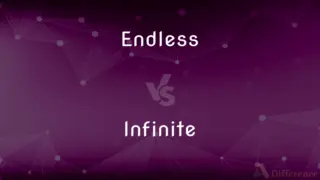
Previous Comparison
Endless vs. Infinite
Next Comparison
Anger vs. AngstAuthor Spotlight
Written by
Urooj ArifUrooj is a skilled content writer at Ask Difference, known for her exceptional ability to simplify complex topics into engaging and informative content. With a passion for research and a flair for clear, concise writing, she consistently delivers articles that resonate with our diverse audience.
Edited by
Tayyaba RehmanTayyaba Rehman is a distinguished writer, currently serving as a primary contributor to askdifference.com. As a researcher in semantics and etymology, Tayyaba's passion for the complexity of languages and their distinctions has found a perfect home on the platform. Tayyaba delves into the intricacies of language, distinguishing between commonly confused words and phrases, thereby providing clarity for readers worldwide.














